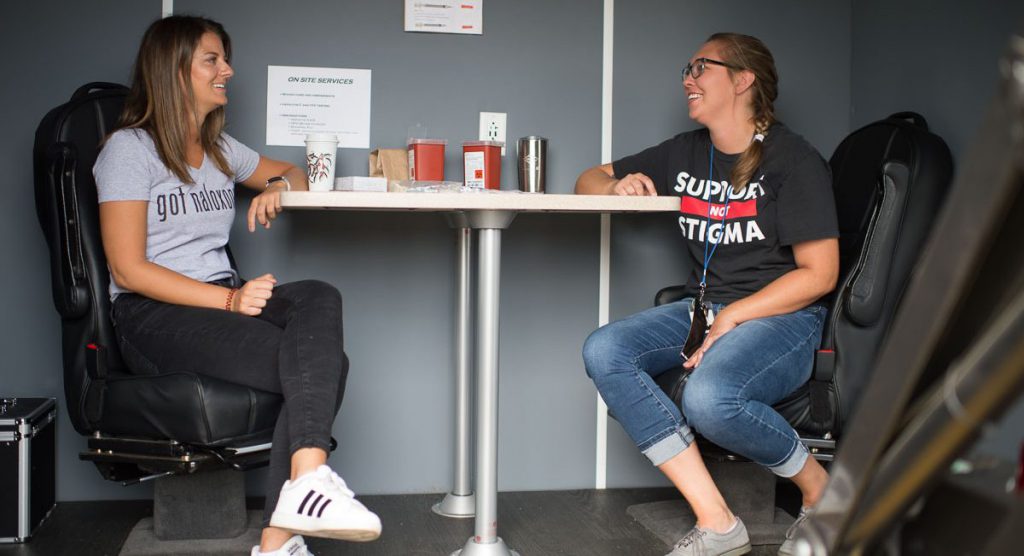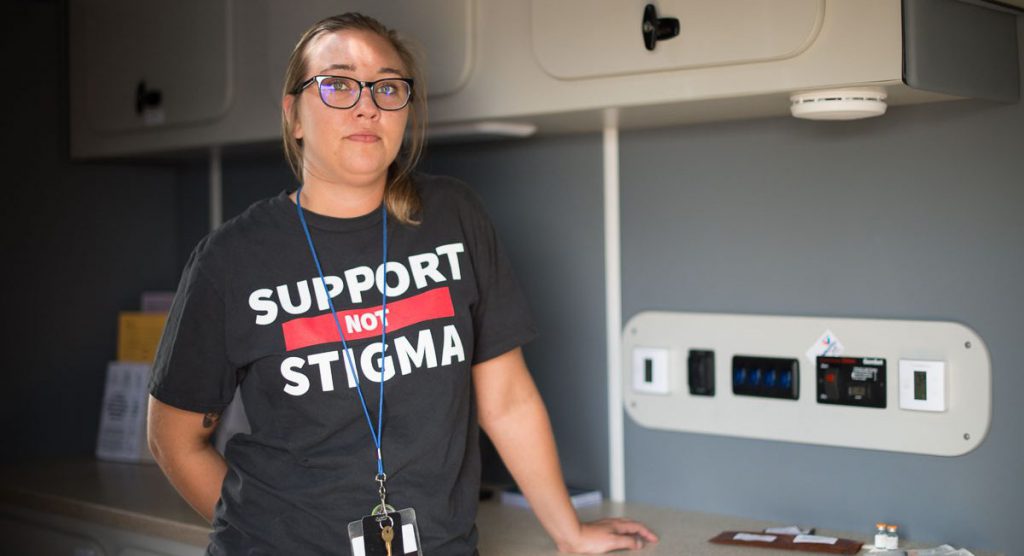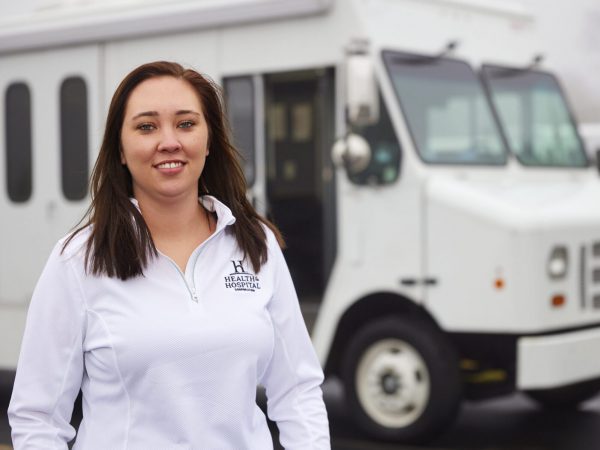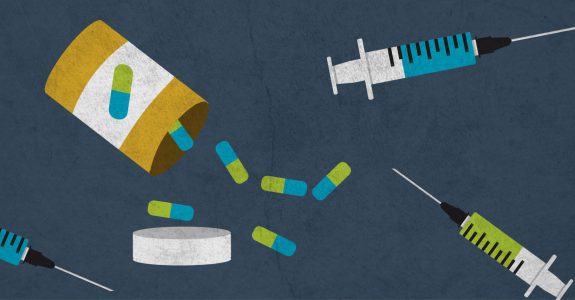Studies show that participants in a syringe services program are five times more likely to enter drug treatment than injection drug users who do not participate in such programs. For persons who inject drugs, the one-time use of sterile syringes is the safest, most successful method for limiting the transmission of blood-borne infections.
Just ask Haley Bohannon, Peer Recovery Coach for the Marion County Public Health Department’s syringe services program. When Bohannon was actively using drugs and needed a needle, she didn’t consider if the needle potentially had hepatitis C because her addiction was so strong. Today, she is four-and-a-half years sober, and through her role as a Peer Recovery Coach with the Safe Syringe Access and Support (SSAS) Program, she works to help others avoid the same choices she had to make while managing her substance use disorder.
“When our clients learn that I have been in their shoes, they’re very surprised,” Haley said. “To be able to share my strength with them is really rewarding.”
As a Peer Recovery Coach, Haley supports people with substance use disorder, working out of a mobile unit used to operate the county’s first legal syringe services program. The Marion County Public Health Department (MCPHD) unveiled its program in April 2019 with funding support from the Richard M. Fairbanks Foundation.
Employees like Haley are helping to make a difference in Hoosiers’ lives. Within the first month of opening, a male client visited the mobile unit for sterile syringes. He continued to use drugs, but more recently, he came to the clinic looking healthier. “He told me he was able to begin substance use disorder treatment and that during a time when he didn’t have anyone, our services helped to save his life,” Haley said. “I’m glad we can be there for people.”

In addition to needle exchange services, the SSAS Program also provides clients:
- HIV and hepatitis C rapid screening
- Education around safer drug use practices
- Referrals for substance use disorder and mental health treatment
- Wound care education
- Immunizations
- Referral to primary care
- Access to health insurance coverage
Initiatives like the SSAS Program are connecting Hoosiers to the help they need to combat substance use disorder, but barriers remain, such as transportation and a lack of connectivity among providers who treat substance use disorder.
In Indiana, fatal drug poisonings (overdose deaths), which declined by 12% between 2017 and 2018, increased by 6% in 2019 to 1,700 deaths. These figures increased sharply in the first five months of 2020: fatal drug poisonings (overdose deaths) for the 12-month period ending in May grew by 17% in the U.S. and by 22% in Indiana from 2019 to 2020 – a troubling trend that experts attribute in part to the hardship and isolation forced by COVID-19.

Haley wants those suffering from substance use disorder to know one thing: “We support you regardless of what stage you’re at,” she said. “We’re not here to judge. We’re here to help break down any barrier you have to accessing support.” She also emphasizes the importance of the community understanding substance use disorder so they can be a supportive force in driving change.
“The stigma surrounding substance use disorder often prevents people from seeking support,” Haley said. “We can all help by learning more and using stigma-reducing language.”
To learn more about the SSAS Program, visit marionhealth.org/safesyringe.



